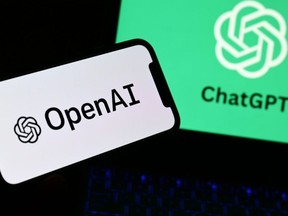
Contents of the article
San Francisco (USA) (AFP) – ChatGPT maker OpenAI on Tuesday announced the Atlas search browser, which uses its artificial intelligence capabilities to directly challenge Google Chrome.
Advertisement 2
Contents of the article
“It’s an AI-powered web browser built on top of ChatGPT,” OpenAI chief Sam Altman said in a streamed presentation.
Contents of the article
Recommended Videos
Contents of the article
OpenAI has stepped up its challenge to Google, which has responded by rapidly introducing more artificial intelligence capabilities into search and across its entire platform.
Altman and the executive team demonstrated an “agent” mode in which a chatbot performs searches on behalf of the user.
Altman said that in agent mode, ChatGPT uses the web browser independently and returns what it finds.
“It has all your stuff in it, and it clicks,” Altman said.
“You can watch it or not, you don’t have to, but it uses the Internet for you.”
Atlas will launch Tuesday on computers running Apple's operating system for free, but Agent Mode will only be available to users of the paid versions of ChatGPT Plus or Pro, Altman said.
Contents of the article
Advertisement 3
Contents of the article
“We want to bring this to Windows and mobile devices as quickly as possible,” Altman said, without specifying a time frame.
“This project is just getting started.”
Some of Atlas' offerings demonstrated in the stream appear similar to features already built into the Google Chrome and Microsoft Edge internet search browsers.
– Pressure on Google –
Tech rivals Amazon, Google, Meta, Microsoft and Elon Musk's xAI have been pouring billions of dollars into artificial intelligence since the blockbuster launch of the first version of ChatGPT in late 2022.
“The OpenAI browser is putting pressure on Google,” Emarketer technology analyst Jacob Bourne told AFP.
“This is another step in the AI race as tech companies try to make their AI interfaces the first point of contact for internet users.”
Advertisement 4
Contents of the article
According to the analyst, OpenAI has an opportunity to take advantage of the popularity of ChatGPT and attract people to its browser.
However, Bourne noted that Google has a significant infrastructure advantage in terms of delivering the browser experience to billions of users.
The big question is how well Atlas will perform under pressure from Google, he added.
Atlas' debut comes just after Google avoided having its Chrome browser destroyed in a major U.S. competition case, but a judge imposed legal protections whose impact remains uncertain just as AI is beginning to compete with search engines.
Judge Amit Mehta, who a year ago found that Google illegally maintained a monopoly in online search, did not order the company to sell the widely used Chrome browser.
Advertisement 5
Contents of the article
Instead, he ordered measures including requirements to share data with other firms so they can develop their own search products and a ban on exclusive deals to make Google the sole search engine on a device or service.
Mehta himself noted that the situation has changed since the US Department of Justice and 11 states filed an antitrust case against Google in 2020.
– Problems –
OpenAI, Perplexity and Microsoft are adding to the challenge for Google, which dominates the online search market where it makes most of its revenue through targeted advertising.
OpenAI recently introduced a new feature to ChatGPT, a leading generative artificial intelligence model with 800 million weekly users, that allows it to interact with everyday apps like Spotify and Booking.com.
Advertisement 6
Contents of the article
The new functionality allows ChatGPT to interact with various applications for selecting music, searching for real estate or exploring hotel and airline booking sites.
Meanwhile, Perplexity AI announced a new search revenue-sharing model with publishers in August.
According to the San Francisco-based startup, the company's media partners will be paid when their work is used by the Comet browser or Perplexity's artificial intelligence to satisfy queries or requests.
Perplexity is one of Silicon Valley's hottest startups, whose artificial intelligence-powered search engine is often cited as a potential disruptor for Google.
Google shares fell just over one percent in trading after OpenAI announced Atlas.
Contents of the article




:quality(85):upscale()/2025/12/15/996/n/1922195/1f7241cf694091eb4762b6.69255583_.png?w=150&resize=150,150&ssl=1)


